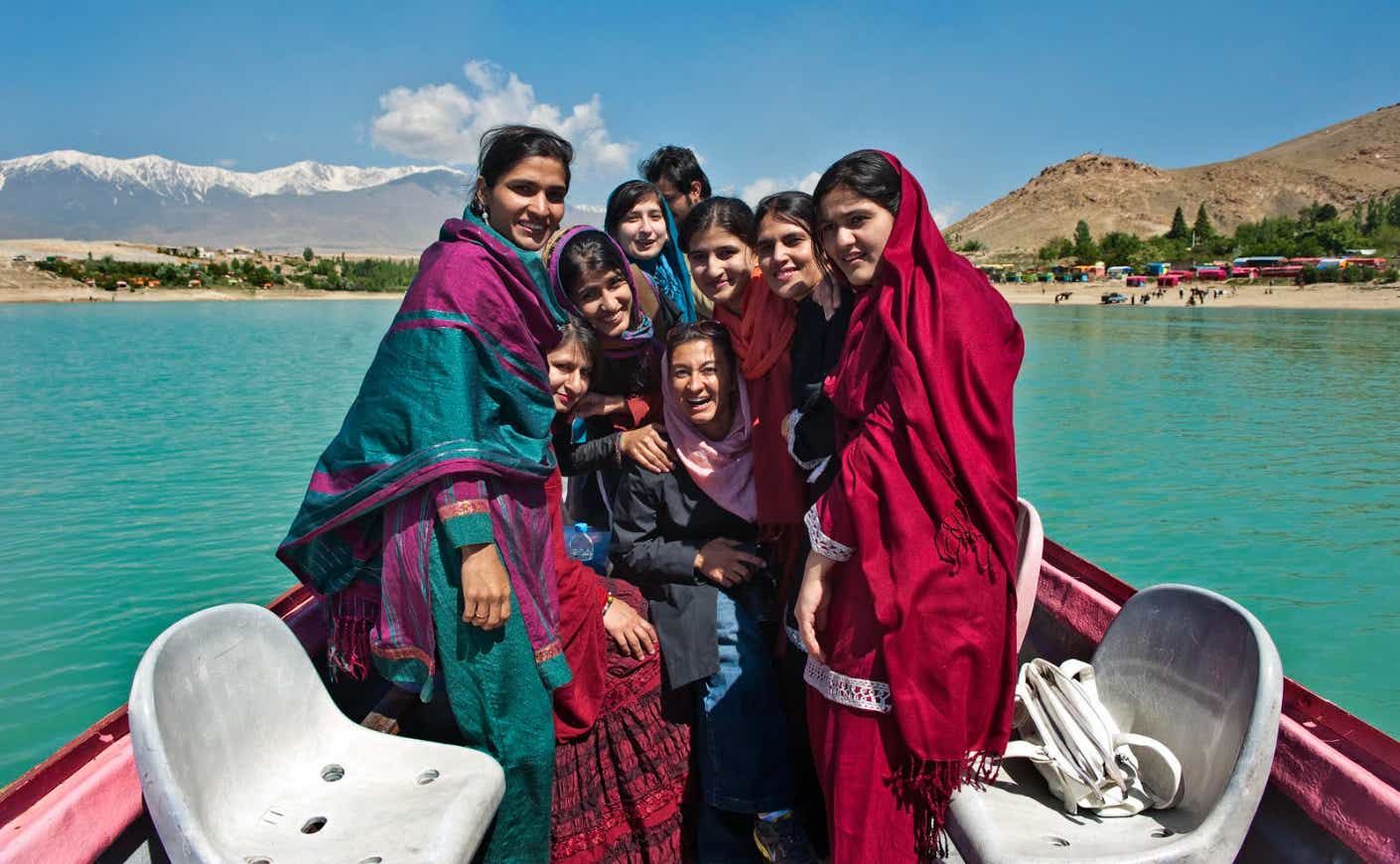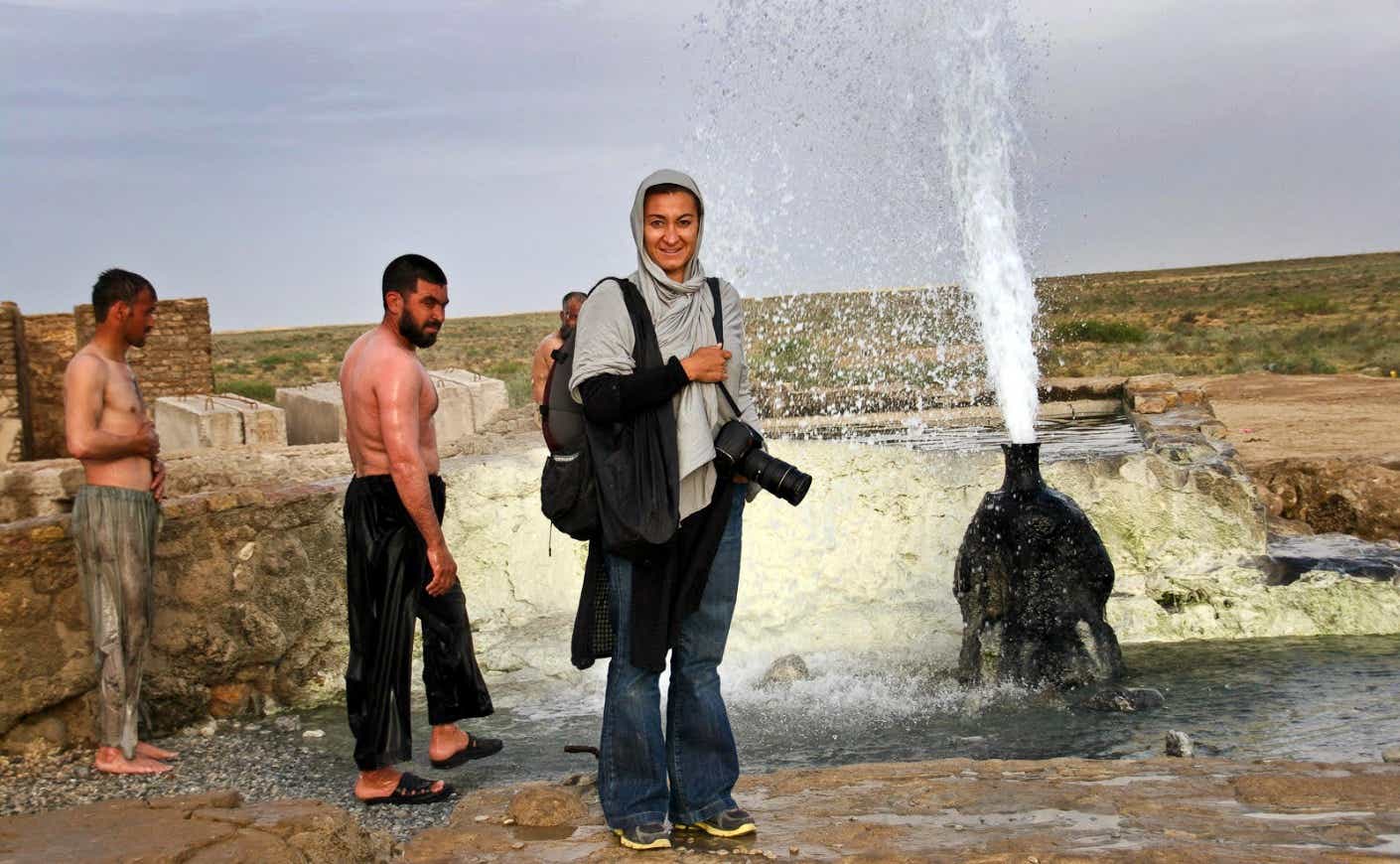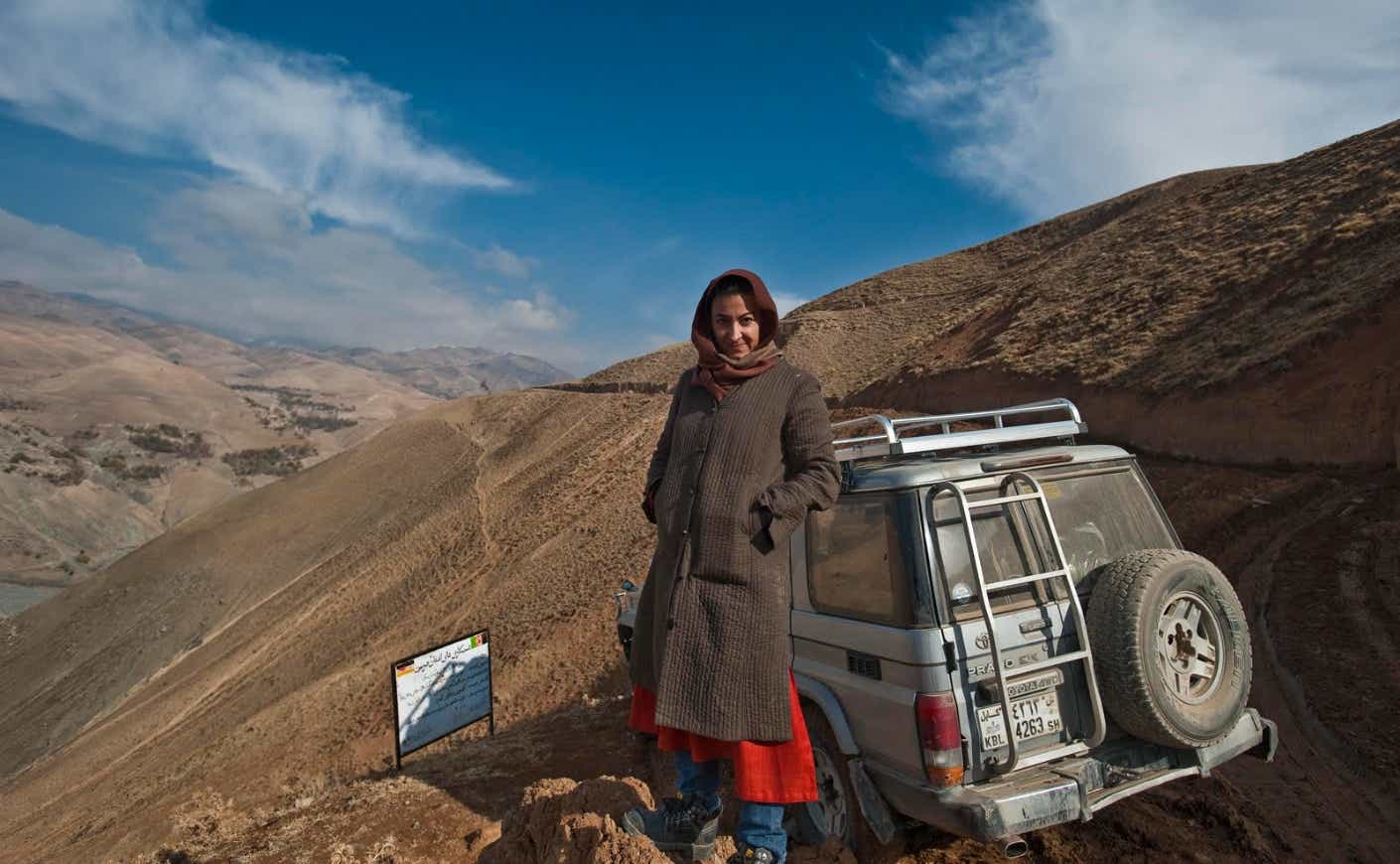Award-winning photojournalist Lynsey Addario wasn't sure what to expect when she first traveled to Afghanistan in 2000, but she quickly got an up-close-and-personal look at life for women under Taliban rule.
"It was just really oppressive," Addario tells KCM in a powerful conversation. "Women lived in fear that if their voices were heard while they were speaking walking down the streets, if they did leave the house, that they would be beaten. Many women were beaten because their burqa wasn't long enough, or they might have a strand of hair hanging out of their burqa. There was silence on the streets because people were terrified, always."
Photography was illegal at the time, and Addario required a male guardian to safely take her around the country. Despite the danger, she was able to meet women in secret at their homes or in girls' schools hidden in basements, allowing her to capture stunning images depicting their day-to-day reality.
In the two decades since, Addario says she's "watched Afghan women blossom" as they've taken up careers in journalism, medicine, and politics and thrived in a more equitable environment. But now, with U.S. troops withdrawing from the country and the Taliban back in charge, she's worried about how these women who "spent the last 20 years finding their voice and defining themselves" will fare under the conservative regime.

Addario said the Taliban is trying to demonstrate to the world that they've changed, but she's dubious about how much change is really possible.
"They said, 'We will allow women to stay in school, we will allow women to work,' but with the parameters that these 'privileges' would be afforded under their interpretation of Shariah law, the most extreme version of Islamic law," Addario said. "To me, when I watch the things the Taliban is saying, there's a lot of room for interpretation, and that gives me pause. Young women didn't live under the Taliban, or they wouldn't remember it. And I think they are probably feeling the fear of their parents. I think no one really knows what will happen if they try to test those boundaries."
As we've all seen in the heartbreaking images coming out of Afghanistan in the last few days, the situation there is chaotic and dangerous. But Addario worries things will only get worse once the glare of the global spotlight currently on the country fades away.
"The Taliban is on its best behavior right now. They know the international community is watching," Addario said. "But what will happen when the United States and every other country has already extricated every single one of their nationals and the Afghans they plan to take? What will happen to the Afghans left behind when it's just the Taliban there to rule them?"

If you'd like to support these vulnerable women, Addario has partnered with Too Young to Wed, a group working to empower girls and end child marriage globally, in launching a rapid action fund to evacuate and resettle a group of 160 high-risk Afghan women.
"Among the individuals are an infant, a toddler, schoolgirls, translators, television reporters, humanitarian aid workers, and an author who has written several books on Taliban rule and its repercussions for women’s rights," the campaign's site says. "One advocate was beaten by the Taliban while pregnant with twin boys during Taliban rule, resulting in the stillbirth of both babies."
Looking forward, Addario told us she hopes the United States can welcome Afghan refugees to our country and facilitate more evacuations before leaving Afghanistan completely. But she's also afraid of what will unfold as the situation grows more dire.
"It's a waiting game," she said. "For the immediate, people are just trying to save their own lives. And for Afghans who are outside of Afghanistan and who are desperately trying to get their family members out because they're terrified, there is no answer."









